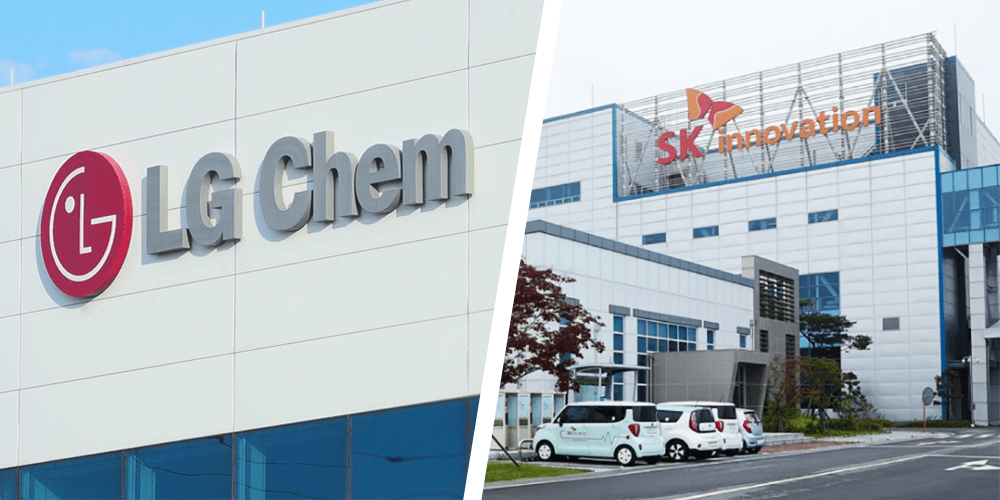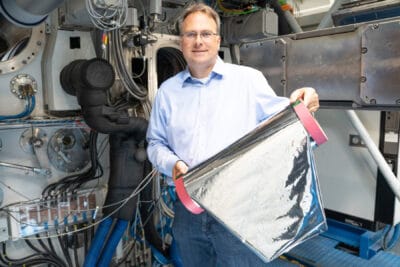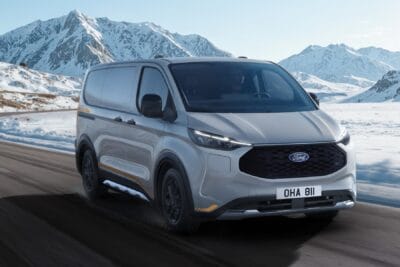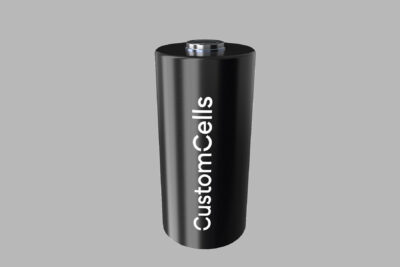LG Chem wins one legal fight in the battle with SK
The legal dispute between the two South Korean battery manufacturers LG Chem and SK Innovation in the USA has been decided – in favour of LG Chem or LG Energy Solution. The ruling also has consequences for Ford and Volkswagen.
++ There have been updates to the story, please see below the article. ++
After the US Trade Commission had already ruled provisionally in favour of LG in February 2020, its final verdict now follows. And it’s a tough one: SK Innovation will be banned from importing certain batteries and their components into the US for a period of ten years.
However, there are temporary exceptions: For example, SKI is allowed to temporarily import components for the US production of batteries for the electric Ford F-150 and Volkswagen’s MEB vehicles – for four years in the case of Ford and two years in the case of Volkswagen. These periods are intended to give the carmakers the opportunity to find other domestic battery suppliers. In addition, SK Innovation is granted the right to import components to repair and replace batteries installed in electric cars already delivered by Kia in the US.
Even though the US Trade Commission has now issued its final ruling, SKI has two options to avoid the import ban: On the one hand, LG Energy Solution is open to settlement talks. Secondly, the US government has 60 days to consider whether to veto the ruling.
Another way out for SKI would be to procure all the necessary materials in the USA in order to circumvent the import ban. But analysts quoted by Reuters say that is “not feasible”. And even if it were feasible, the costs would probably rise above the level calculated so far.
LG Chem filed a lawsuit against its competitor SK Innovation in spring 2019. The allegation was that employees recruited by SK Innovation from LG Chem had passed on LG Chem’s proprietary know-how to develop and produce batteries to SK Innovation. SK Innovation sued LG Chem for alleged patent infringements a short time later. LG Chem claimed, among other things, that SK Innovation had only won the contract to supply battery cells for Volkswagen’s MEB modular system because employees poached by LG Chem had disclosed said trade secrets.
In a statement, SK Innovation regretted the US Trade Commission’s decision, but said it was “relieved that we will continue to supply Ford and Volkswagen”. It is unknown whether the two customers feel the same way: Neither Ford nor VW have yet commented on the ruling.
LG Energy Solutions sees its position confirmed in the ruling. “SKI’s total disregard of our warnings and intellectual property rights gave us no choice but to file this case,” said Kim Jong-hyun, CEO of LG Energy Solution, in a statement. “The company will further strengthen the protection of intellectual property rights going forward.”
The CIP plant in Georgia will supply VW’s Chattanooga factory in neighbouring Tennessee. Volkswagen is currently converting parts of its US plant for MEB production; among other things, the ID.4 is to be built there starting from 2022. Chattanooga would have been the first MEB plant with cells from SKI. Now it remains to be seen how the VW Group will react to the new situation.
At Ford, the SK Innovation cells are intended for the electric version of the F-150 pickup, which is to be built from 2022. The US carmaker is somewhat in a quandary because the Ford is a customer of both parties: LG Chem supplies the battery cells for the Mustang Mach-E built in Mexico, more precisely from its plant in Poland, as Ford manager Ted Cannis confirmed to electrive.
Update 15 February 2021: Following the ruling as above, which among other things only allows SKI to import battery components for Volkswagen for a period of two years and Ford for a period of four years, Volkswagen has now reacted.
The Group wants to apply to extend the exemption for at least four years and hopes that the two suppliers will settle the dispute out of court.
Volkswagen also stated they were an “unintended victim” in the dispute between the two battery makers to appeal to the US government.
VW has invested around $800 million in its Chattanooga plant in Tennessee to build electric cars and has hired hundreds of employees. “Volkswagen will take all necessary steps to allow us to fulfil our commitment to provide skilled jobs to proud Tennessee workers,” the automaker said in its appeal.
Ford Chief Executive Jim Farley publicly encouraged LG Chem and SK Innovation to settle this week as well. Both carmakers previously warned the dispute could disrupt supplies of the key EV parts and cost jobs during the Covid-19 pandemic.
On Friday, Georgia Governor Brian Kemp directly called on President Joe Biden to overturn the ITC ruling, warning the long-term prospects for the SK Innovation battery plant in Jackson County would be “harmed significantly.” The plant will eventually build batteries for Volkswagen and Ford.
The White House and SK Innovation declined to comment to the Reuters news agency.
Update 08 March 2021: And the story continues. The ruling in the legal dispute between the two South Korean battery manufacturers LG Chem and SK Innovation in the USA only allows SKI to import battery components for Volkswagen for a period of two years and for Ford for a period of four years as above. Now the US Trade Commission is criticising Ford, saying that the carmaker continued to conclude battery contracts with SK Innovation even after evidence had emerged that the South Korean battery manufacturer had violated the trade secrets of its rival LG Chem. Ford denies the accusation and SK Innovation is threatening to halt the construction of its battery factory in Georgia.
Additional reporting by Nora Manthey.
reuters.com, koreajoongangdaily.joins.com, ustic.gov (PDF), businesswire.com (reaction to LGES), reuters.com (update 13 February), reuters.com, reuters.com (update 08 March)





0 Comments